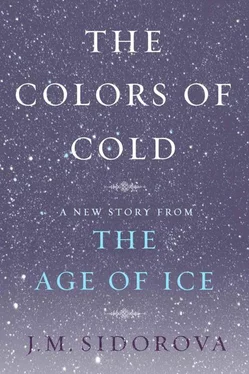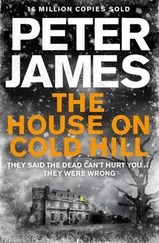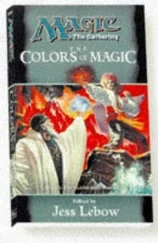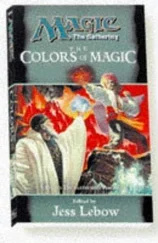The gossips of St. Petersburg found the famous “rejection of Prince Velitzyn by Countess Tolstoy” a fertile ground for speculation. Many held me at fault. In another year my petite comtesse married a rich civil servant twenty years her senior, while I remained chaste—and now the gossip turned to my deficiencies, one guess more piquant than another. Then Marie died in childbirth. Those narrow hips of hers.
After her death my critics fell silent. Now I was a black swan who had lost the mate of his life. The irony.
Of this I am as sure as I can be: she never shared my secret with anyone, she took it with her.
* * *
If not for Marie, I would have taken much longer to understand it, but now I knew: arousal made me cold. What was I to do?
I became a misanthrope. I was intemperate with my grenadiers and curt with everyone else. I was disconsolate and reveled in it; after a while I became disliked. I daydreamed of various exotic and demonstrative ways of self-destruction. When Empress Ekaterine imported the distinguished Dr. Dimsdale and his son from England in 1768 to inoculate herself and the young Grand Duke Paul against smallpox, I volunteered to be the corpore vili on which to fiat experimentum. (The empress refused to order anyone to submit to such a fate, while the doctor was reluctant to use his procedure on her without a test run.) I looked forward to a dignified illness and heroic death, but the self-sacrificial move turned out to entail a week of purgatives and boiled vegetables, followed by nicking on both arms with a scalpel dipped in pustules of a disease-stricken child from the city’s outskirts. This was followed by another week of laxatives and special diet, during which I developed tenderness in my arms and then a mild fever. Then I got well. I erupted not one pustule, and Dr. Dimsdale doubted the inoculation had truly taken; he certainly could not use me as a source for more inoculations (which was my last hope: in those days we believed that the subject whose pustule matter is taken to inoculate others will consequently die). In two weeks, profoundly purified of “crudities in my stomach,” sick of turnips and cabbage but hardly altered otherwise, I returned to the regiment and to misanthropy.
One winter eve, Svetogorov stomped into our room in the Leib Company House straight from la louveterie —wolf-hunting—with Count Gregory Orlov. Smelling of fresh snow and blood he came, rosy-cheeked and ready to pour out a full report of his adventure. Then he observed me curled on my cot, wrinkled his nostrils at the stifling air, and judged, “It ought to stop someday, friend Alexis. Count Gregory inquired after you just now. He is where power is. Three”—he raised his eyes to the ceiling and counted on his fingers—“no, four ladies I personally know, comfortably married and nicely positioned dames, have been inquiring after you and are ready to allay your… your douleur …” He made a pause and since I did not protest, he hounded me a bit more. “I mean… Poor Marie had been a fine maiden, no question. But to keep mortifying yourself over her is just unhealthy. She was not your wife.” Again, he checked the effect and baited me, “She was not bearing your child… I assume.”
I lunged at him like a cornered wolf. I struck him in the chest and called him an unscrupulous lecher and an insensate fool. As he swung his arms to avoid my grabbing him by the lapels, I demanded that he challenge me to a duel, and when he cried, What for? I answered, For calling you a fool, you fool! and by then other officers came upon our spectacle and held us back while I shouted, Fine, then I will challenge you—for speaking lowly of the late countess Tolstoy!, and when everyone heard that, they just shook their heads. Their hands shrank from me, and Svetogorov righted his dislodged jacket and muttered, “I won’t duel with you, Alexander Mikhailovich. Foremost you need to fix yourself.”
I strode out, chased by reproachful stares. I sprinted along the Winter Canal to the Neva, then tumbled down the bank onto the Neva’s frozen bed. On my hands and knees, I wanted to wash my face with snow—and that was how I learned that rage made me cold too. The snow would not melt against my skin.
I howled. I cursed the river, the night, the city. I cursed until nothing and no one else was left to curse at, but me.
* * *
From then on it became a matter of finding what else would provoke my body. I was no black swan. I was a mangy wolf. I picked fights in St. Petersburg’s seediest taverns. I dressed as a commoner for those adventures, but I fooled no one who mattered. The next day the whole regiment could see my black eye or squashed lip. I remember myself crouching in someone’s yard one night, whether thrown out of a drinking establishment or hiding from a ruffian’s chase, my heart thumping, my hand squeezing snow, my mind noting with malicious satisfaction that, once again, the snow did not melt. Fear made me cold too.
And I never, ever felt it.
It would have been funny if it wasn’t so sad. I may have misunderstood altogether, I realized, what others meant by saying they were cold . When I used the word, it could mean a pang of anxiety, or discomfort. Or unwelcome weather. Even so, I believed I hadn’t been cold as a child. Maturing into a man was what had brought it about, and provoking it now only made it stronger.
At last my commanders ordered me to take leave. Officially, they were rewarding me for my smallpox heroics. Unofficially—if I did not mend my shaken constitution, my leave could well become expulsion from the regiment. And yet, all I thought about was the multitude of things I could do back home—hail the labyrinthine, crooked-streeted, humpbacked Moscow with her high fences, deep cellars, and dark taverns! She’d turn her blighted eye on my histrionics. She would not fuss about me the way pretentious St. Pete’s did!
* * *
My childhood home, the estate of Velitzyno, lay just outside Moscow proper and encompassed fields, groves, a river, several lakes and villages. Two elders, my father and uncle, or rather, somnolent inertia, ran the estate; other Velitzyn males of service age were all dispersed, either throughout the empire in its numerous garrisons, holding the borders, or at court, in the Senate, in collegiums (i.e., ministries), holding the rudder, or as ambassadors in Europe, holding fingers on her political pulse. The old mansion meanwhile was filled with nieces of all ages and a few prepubescent nephews, tended by a company of seven ladies and an army of house folk. The days were spent having meals or talking about them, except on Sundays, when there was also church in the morning, and the banya, a bathhouse with a steam lodge, at night. Into this bliss I descended, a mangy wolf with little else to do but roam and sniff for blood.
My father was not pleased to see me. But to the resident flock, I, an elite officer in the prime of his late twenties, was still a shiny gift from the capital. At once, I saw a world of opportunity for self-indulgence. I did not have to go to Moscow for my debaucheries, I could just as well start right here at home.
Consider an example of my activities:
At eleven o’clock one January Sunday, I insist on combining a little red sleigh (hardly used) and a certain two-year-old mare (who never pulled that sleigh before). Disregard advice of the stablemaster. ( Shaves too short for her, he says. Bah! I say to that.) Charge off. Following a river, I encounter a hillock upon which stands a banya, where some peasant women dash out to gambol in the snow. I drive in and catch them unawares, most flee, one slips and falls. Her body is white and pink and veined, and freckled in places; it steams, and the snow that still clings to it is melting. I take my fur greatcoat off, lay it out at her feet, order her to step on it. Back up a pace, crouch, order her to stop stooping and covering her shame, order her to look me in the eye. When she does, her face is flushed, her stare defiant, though she is shivering already. She is older than I thought, a married woman, most certainly. She knows what I am about. I scoop snow into my hand and squeeze it. Open my hand. Ask, “What do you see?”
Читать дальше












